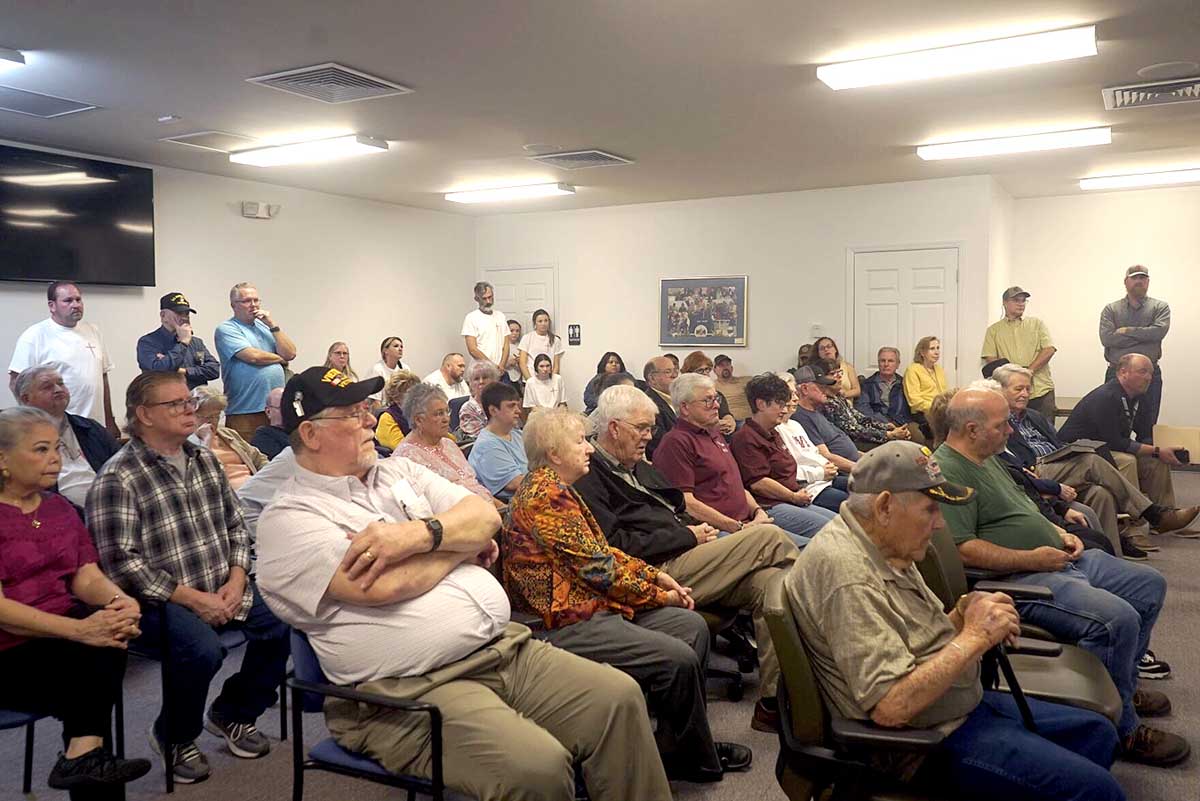Candidates in Place 2 rounding up votes
Published 10:20 pm Thursday, June 22, 2006
With runoff elections less than a month away, Democratic candidates for the Place 2 county commission bid are still trudging along the campaign trail this week.
Both former commissioners, Robert L. Harbison and Norman “Pete” Tucker reported their campaigns were going well Thursday, despite the dry weather and heat.
“It’s hot out. That’s how it’s going,” joked Tucker in a phone interview.
The two candidates made it through the primary election June 6, leaving behind political newcomer Donald Ray Cates. Tucker came out slightly ahead in that vote, taking 44 percent over Harbison’s 34.
They will face each other in the runoff July 18, a later date than usual since the state Legislature approved moving the runoff back three weeks to allow soldiers serving overseas more time to get absentee ballots in.
While historically, runoff elections do not see as high a turnout, Cates attempted to push at least some of his 2,760 primary votes toward Tucker on Wednesday, when he officially endorsed the candidate.
Cates said he chose to endorse Tucker, because he stood the best chance at beating Republican challenger Wayne Willingham in November’s general election.
Despite the endorsement, Harbison told The Times after the primary more than two weeks, he thought he could pick up most of the votes from Cate’s camp. He said he would make a concentrated effort to campaign where those voters lived.
Platforms
In addition to hand-shaking and sign-posting, the two remaining candidates took time to reemphasize their campaign platforms concerning the race’s top issues.
While both called for similar changes early on in the primary, some marked differences were noted this week.
They gave differing opinions on how best to revamp the county’s road maintenance program, which has been hampered recently by high fuel and material costs.
According to Tucker, the solution is proper budgeting. He said it should not be as difficult to anticipate fuel costs will continue to rise, and the time to take care of it is at the beginning of the fiscal year, not in the middle.
He said the county revenue grows by approximately 6 to 8 percent annually, which should cover the expense.
Harbison, on the other hand, said high road repair costs are bringing many road departments to a stand still, and there simply is not enough funding available. His solution is to bring more state and federal grant money into the county to complete road projects.
“I just want to make sure we’re getting our fair share of the tax money we’re paying in,” he said.
Tucker also touted grant money as a good source of income, saying in his previous time on the commission, he brought in more grant money than any other commissioner in the history of the county.
“Nobody can do more with that than I can,” he said.
Other hot-topic issues covered by the candidates included future water resources, budgetary issues and treatment of county employees.
As to the water situation, both candidates said they thought it was important to work with the city and other entities in the county when seeking new water sources.
While Tucker said he was open to many options, Harbison said until an engineer tells him otherwise, he thinks the Duck River Dam project, as proposed by the city, is still viable.
That project, which has been in the planning stages since 1999, already had the support of the county and various other entities, but was stalemated in court with environmental concerns.
Now that the case has been settled, the city is waiting for a permit to begin work on the project.
If the permit is issued, the entity will likely attempt to renegotiate deals with the project’s supporters from seven years ago since the cost has most likely increased over the proposed $50 million originally estimated.
In the meantime, the city is reportedly investigating the Tennessee River and the city of Decatur as possible water sources.
Currently the city sells water to the county and many other water systems in the area. It draws its water from Lake Catoma, but demand is projected to surpass capacity in approximately two decades.
Reportedly, the county is also involved in Tennessee River investigations.
According to Harbison though, it is unlikely legislators will allow Cullman County to draw water from another water basin.
He proposed Smith Lake as a possible back-up plan, but he said that deal would require further negations since the previous attempts to pull water from the lake proved too expensive.
Other differences between the two candidates included implementation of a pay scale for county employees.
The old pay scale was removed by the current commission more than two years ago. At the time, they stated the removed it because it led to unfair promotion and out-of-control raises.
The new scale though, which is reportedly in the final stages of development, has been a long time coming and still has not come up for a vote.
While both candidates said it was unfair to make county employees work without a pay scale, Tucker said he would work to faster implement the new scale. Harbison said he saw little wrong the old system, and that it should be reinstated.
The candidates were in sync on the last issue, saying the commissioner’s primary job is take care of the county’s roads.





